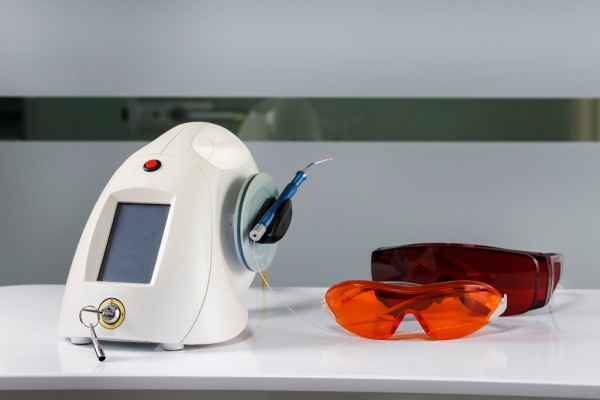How a Laser Dentist Treats Cavities

When people experience cavities, the resulting pain can interfere with eating and flare up when the cavity comes in contact with hot or cold foods. A laser dentist can assist with repairing cavities depending on their severity and in a way that reduces the pain typically associated with such a procedure. Those who want to try laser dentistry may want to first understand how the treatment works, who qualifies, and what they can expect during the appointment.
About laser dentistry
Some dental patients delay having their cavities treated because they fear the discomfort it can cause. However, a laser dentist can eliminate much of that worry by using a water-based laser to treat cavities and create spaces for fillings. The laser reduces pain caused by the existing cavity and removes debris and decay. This offers several advantages for dental patients, including:
- Little to no discomfort during treatment
- No downtime after the appointment
- No drilling or numbing agents required
This type of dentistry can also treat a few other oral issues, such as gum disease, and the process is safe for patients of almost any age.
The laser treatment process
Patients who choose a laser dentist to treat their cavities will likely undergo a consultation first to ensure the process is the right choice for them. A dentist may take X-rays of the affected area and examine the cavity before removing any debris and areas of the tooth that cannot be saved. Once cleared, the dentist uses a water laser to create an area where he or she will place the filling. The laser itself is quite precise, which makes the process more efficient than traditional drilling.
During the treatment, dentists trained to operate laser machines use their invisible rays to remove dead pulp and fragments so they can put a filling in place. One major benefit of using these lasers is their precision that allows dentists to save and repair as much of the tooth as possible and create a smaller filling.
Qualifying for laser dentistry
While laser dentistry is not yet as widespread as traditional treatments, it is gaining popularity as more dentists invest in the equipment and training required. However, patients looking for a laser dentist may want to keep a few factors in mind that could affect their treatment. Those who already have fillings are unlikely to qualify, as the lasers do not remove old filling material.
The placement of a cavity may also affect whether patients qualify for laser dentistry. If the affected area is difficult to reach, some traditional treatment may be necessary. A dentist trained to use water lasers can help patients decide what type of treatment might suit them, especially when multiple cavities require repair.
Conclusion
Laser dentistry can help take much of the anxiety and fear out of cavity treatment, especially for those who have specific fears connected to visiting the dentist and may delay seeing one until tooth loss takes place. This procedure may encourage such patients to visit their dentist more often and improve both their oral health and their smile.
Request an appointment here: https://www.mankatodentist.com or call North Mankato Family Dentistry at 5073184120 for an appointment in our North Mankato office.
Check out what others are saying about our dental services on Yelp: Laser Dentistry in North Mankato, MN.
Related Posts
Orthodontics is a holistic way to improve the look and function of teeth. Orthodontic appliances exert steady and gradual pressure to improve the alignment of the teeth. Common appliances are braces, which do most of the heavy lifting for patients with moderate to severe malocclusions.Do you think that your child needs orthodontics? Keep going to…
Wisdom teeth extraction is a common dental procedure performed to address or prevent pain, infection, and other oral health concerns. While the procedure itself is straightforward, the recovery process greatly impacts healing and overall comfort. Following a few practical tips can support a smooth recovery, allowing patients to get back to their lives faster and…
All-on-4 is a dental restoration option for people who have lost most or all their teeth. This option involves supporting dentures with four implants placed inside the jawbone. The convenience of the entire procedure makes it an appealing choice for people who want implant-based restoration. To determine a patient’s candidacy for the procedure, the dentist…
More dentists are using CEREC® same-day crowns as a tooth-restoration method. If you have a damaged or severely decayed tooth, this treatment could be just what you need. There are benefits and advantages to choosing this method over other options. It is useful to understand how the process works and how it is different than…
